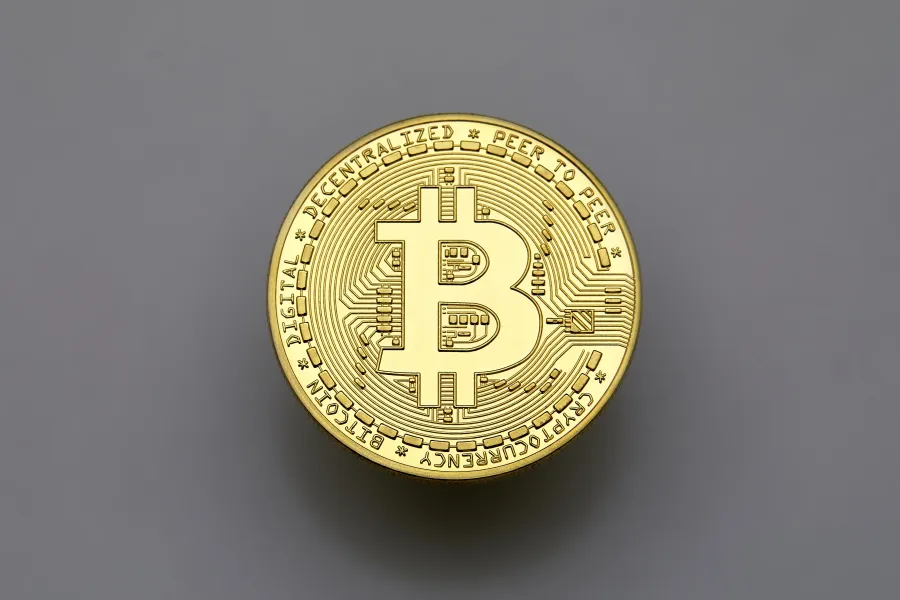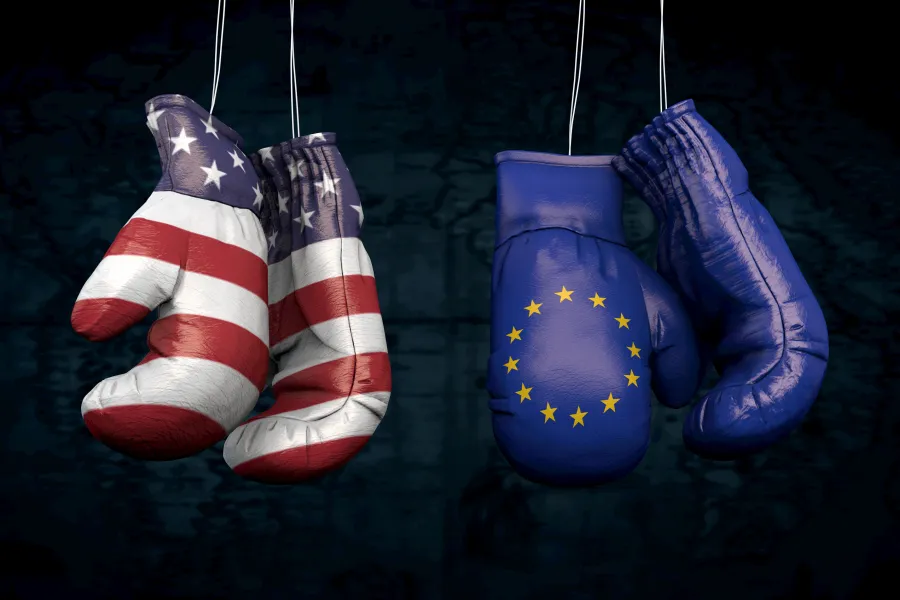Politicians are warming up to crypto
This week, our blockchain experts assessed the following topics:
• Politicians are warming up to crypto
• What is crypto’s destiny after all?
• Data breaches at crypto companies
• Finally: Institutions have arrived
Our bi-weekly Crypto Industry Report provides you with valuable information on the global crypto industry – picked and analysed by our blockchain experts.
Politicians are warming up to crypto
It seems as if the global cryptocurrency space is looking at clearer regulatory guidance to be adopted soon. In the U.S., President Biden’s recent executive order represents the first all-encompassing government approach to clearly lay out proper regulation of crypto assets. This should help financial institutions get more comfortable with the world of crypto.
In Europe, the much-feared vote that could have banned proof-of-work cryptocurrencies was rejected, albeit in a divided vote with 30 to 23 in favour of keeping this provision out of the draft for the proposed Markets in Crypto Assets (MiCA) framework, the EU’s comprehensive regulatory package for regulating digital assets. With this potential ban now out of the way, the regulation proposed in Europe is looking bright.
Good news is also coming from Asia. South Korea’s newly elected president Yoon Suk-yeol has been dubbed to be particularly crypto-friendly. During his campaign, he made promises to ease regulatory burdens on crypto companies. And him recently minting his own signature as an NFT seems to be proof enough as to the seriousness of his intentions in supporting the crypto industry.
At the same time, it is individual countries that are adopting an outright welcoming stance on crypto assets. The most prominent case right now is Ukraine. With the many cryptocurrency donations that have come into the country over the last few weeks, Ukrainian president Volodymyr Zelenskyy just signed into law a bill that legalises crypto. And in Malaysia, popular voices have called for the country to make Bitcoin and other forms of cryptocurrency legal tender, while the Australian government outlined its plan on how to regulate the growing crypto sector.
All of this is happening at a time when the latest numbers coming out of El Salvador indicate that Bitcoin adoption is not running rampant. According to a survey conducted by the Chamber of Commerce and Industry of El Salvador, 91.7% of micro, small and medium-sized enterprises (MSMEs) surveyed in January indicated that Bitcoin being legal tender in their country has not impacted their business in any way at all. And 86% reported that they have not made any sales using the cryptocurrency.
What is crypto’s destiny after all?
The cryptocurrency world is a polarising phenomenon in many respects. The latest controversy has been kicked off by Vitalik Buterin, mastermind and founder behind Ethereum. In a recent article with Time Magazine, the popular crypto geek utters his concerns about crypto’s overall future. As such, he is not particularly proud of the fact that Ethereum has made a handful of white men extraordinarily rich and is considered to be an energy-intensive polluter or a vehicle for tax evasion, money laundering, and mind-boggling scams.
Not very helpful in the eyes of some commentators are projects like the recently launched ApeCoin ($APE). Although the project was started with good intentions and several use cases in mind, a stale aftertaste remains. The Bored Ape Yacht Club, the ecosystem this token has been designed for, has turned into a club for the crypto elite, not least because of the prices one needs to pay to afford a single ape NFT. Unsurprisingly enough, the launch of the ApeCoin once again confirmed all of crypto’s stereotypes: The airdrop has made a few investors a lot richer, while scams tried to piggyback on the coin’s successful launch.
So, the question is: How to initiate a change in direction? While not even Buterin can speak a word of command with a decentralised technology like Ethereum, speaking up for the right approach and in doing so trying to weigh the crypto world in a more preferred direction is the reasonable thing to do.
After all, the past few weeks around the Ukraine situation have impressively shown that cryptocurrencies can have a meaningful impact in the real world. Crypto can help people in need and doesn’t just represent million-dollar images of monkeys. As a matter of fact, blockchain’s true spirit of making the world a fairer, more inclusive place, which is more closely aligned with people’s real preferences is still in the making even though things like the NFT hype may sometimes temporarily cloud this trajectory.
And yes, even NFTs will be part of this overall change to the better, if rightly applied and used. Just think of the potential that NFTs offer people in raising money, selling their work directly to fans, and using the blockchain as the ledger to track payments – everything without an intermediary.
Data breaches at crypto companies
HubSpot is a third-party marketing vendor serving different crypto companies. Exactly which companies became obvious a few days ago when the company announced that up to 30 of its clients were impacted by a data breach affecting the marketing firm. Among the clients hit by the data breach were NYDIG, Pantera Capital, BlockFi, Circle, or Swan Bitcoin.
The hacker’s attack was particularly targeted at customers in the cryptocurrency industry as the hackers were aiming for users’ names, email addresses, and phone numbers that were stored with HubSpot. A similar attack to steal customer data was successfully launched at Ledger, the hardware wallet company operating out of France.
Unfortunately, such data breach incidents are still the order of the day in today’s digital age. On the positive side, blockchain-based assets provide some additional security as email addresses or phone numbers alone won’t enable an attacker to withdraw any assets. Still, personal information that is being leaked can potentially reveal too much about a single person, which is why working to prevent data breaches altogether remains a top priority.
And it might just be the case that blockchain technology is one of the missing puzzle pieces. A blockchains’ decentralised nature surely encourages the protection of data. Concretely speaking, non-fungible tokens – so-called NFTs – could be used to secure an individual’s data and prevent instances of identity theft and fraud.
Finally: Institutions have arrived
It’s one of the most prevailing mantras in crypto: “Institutional investors are entering the crypto space”, so the mantra goes. Ever since the 2017 bull run, people have been speculating on whether or not institutions are already here. While in retrospect it is rather clear that the 2017 cycle was still missing key financial infrastructure, the much-needed building blocks like custody, derivatives, or on-ramps to enable institutional investments are now present in 2022.
Looking at custody, we have seen the biggest players from the traditional world closing in on the crypto world. With over $40 trillion in assets in custody, the world’s biggest custodian State Street has partnered up with London-based crypto custodian Copper to provide custody for crypto assets. Another traditional industry giant, BNY Mellon announced to be collaborating with digital asset infrastructure provider Fireblocks in the pursuit of launching institutional-grade custody solutions for cryptocurrencies later this year.
BNY Mellon is also among the many investment banks that have revived or are starting their own crypto desk just like BlackRock or Goldman Sachs. The latter just informed that it has done the first over-the-counter crypto trade executed by a major U.S. bank. By acting as a principal in an OTC crypto trade, the bank is taking on greater risks than before when dabbling in crypto. Nonetheless, Goldman Sachs seems comfortable taking this risk, which can be interpreted as a notable step in the institutional development of crypto markets.
But such risks might be something, institutional investors are increasingly willing to take. After all, in a yield-starved world, high potential return investments are being re-evaluated. Recent rumours have it that Bridgewater, the world’s biggest hedge fund is preparing to back its first crypto funds. By doing this, they are mirroring a trend that has been in the making.
As a matter of fact, institutions have been flocking into DeFi, especially in the second quarter of 2021. As blockchain data platform Chainalysis showed in a report, large institutional transactions, which are transactions above $10 million, accounted for more than 60% of all DeFi transactions during this period. Reason enough for the popular blockchain software technology company Consensys to publish a guide to DeFi and Web3 for crypto funds, market makers, trading desks, and other organisations.
Share post

Auch interessant

To be continued: SEC pushes back at Coinbase
SEC pushes back against Coinbase's claim of no regulatory jurisdiction, stating the crypto exchange knowingly violated securities laws. Meanwhile, Gemini, owned by the Winklevoss twins, files a lawsuit against Digital Currency Group and CEO Barry Silbert alleging fraud and deception following the collapse of a lending venture. The Bank for International Settlements survey reveals that 93% of central banks are working on Central Bank Digital Currencies (CBDCs) which are seen as potential geopolitical policy tools and a challenge to the dollar's dominance. The race for a Bitcoin ETF intensifies, with BlackRock refiling its application featuring Coinbase as the market surveillance partner, as the Grayscale Bitcoin Trust's discount to net asset value narrows, potentially indicating the transformation into a proper ETF.

BlackRock fever: The ETF filing spree and institutional appetite
BlackRock filed for a Bitcoin ETF with the SEC, inspiring similar applications from firms like WisdomTree, Invesco, and Fidelity, and boosting Bitcoin's value. Traditional finance institutions such as Fidelity and Nasdaq are showing increased interest in crypto, with moves towards exchange and custody services. The defunct crypto exchange FTX, under new CEO John Ray III, is planning a potential revival after recovering significant assets. Meanwhile, the IMF is developing a global CBDC platform for cross-border transactions and DAI, a major stablecoin, is diversifying its backing from USDC to include real-world assets.

SWIFT explores blockchain interoperability
SWIFT has partnered with Chainlink to experiment with leveraging its infrastructure for transferring tokenized value across blockchain networks. The trials will address interoperability, regulatory challenges, and operational drawbacks for financial institutions in a blockchain environment. Chainlink will provide connectivity between private and public blockchains. SWIFT's findings will be published later this year.

China wants an Internet 3.0, while Hong Kong gears up for crypto trading launch
China is striving for advancement in Internet 3.0 technologies, with Beijing's white paper outlining plans to invest in the development of the metaverse and Web3 tech such as non-fungible tokens, but not cryptocurrencies due to the country's previous ban. Meanwhile, Hong Kong is launching its new crypto trading regulations, allowing retail investors to participate from June 1, 2023, with exchanges like Huobi Hong Kong beginning to offer spot trading to retail and institutional clients. Furthermore, the Cybersecurity and Technology Crime Bureau of the Hong Kong Police Force is launching a metaverse platform, 'CyberDefender', to educate the public about potential threats and crime prevention in the metaverse.

BRC-20: Innovating on Bitcoin is the new cool
A new Bitcoin “token standard” called BRC-20 is the hottest thing right now in the crypto space. It was introduced in March 2023 by a pseudonymous person called Domo. Bitcoin Request for Comment 20 (BRC-20) is an experiment that brings fungible tokens to the Bitcoin blockchain using the Ordinals protocol. Ordinals rely on ordinal theory, enabling the identification and tracking of individual satoshis within Bitcoin's existing supply, while also allowing them to be inscribed (associated) with data. Through this technique, satoshis (sats) are given ordinal numbers starting with zero. Anyone can add a script file to a sat to create and transfer a BRC-20 token on the Bitcoin blockchain. BRC-20 tokens are created using three functions: deploy, mint, and transfer.

US versus EU: Giants fighting for regulatory clarity
It is official now: The European Parliament voted overwhelmingly in favour of Markets in Crypto Assets (MiCA), legislation that will guide the crypto sector in all 27 European Union member states. 517 parliament members voted for it, while 38 voted against it. This approval makes Europe the first continent with comprehensive rules for cryptocurrencies. Also, it means that all EU member states will have unified crypto regulations. So, if a crypto business is approved in one EU member country, it could easily expand operations to another member state. The EU’s milestone was lauded by Binance as well as Kraken and Coinbase.

Ethereum: Another milestone reached with the Shanghai Update
On April 12, 2023, Ethereum successfully executed the planned Shanghai update also known as Shapella. The upgrade allows validators to unstake their staked ETH and withdraw their rewards, as well as staked ether if chosen. Now that another level of uncertainty has waned for the biggest smart contract blockchain, this new feature could attract more investors to stake their ether.

CFTC versus Binance:
Clash of the titans
The world’s leading crypto exchange by volume, Binance, alongside its CEO, Changpeng Zhao, and ex-Chief Compliance Officer, Samuel Lim, are being sued by the US Commodity Futures Trading Commission (CFTC).

Stablecoin USDC briefly lost its
peg. What do we learn from this?
One of the top stablecoins by market cap, USD Coin (USDC), de-pegged briefly from the US dollar on March 11 following the collapse of Silicon Valley Bank (SVB). Circle, the stablecoin’s issuer, held $3.3 billion in USDC reserves with the bank, which caused panic as investors rushed to withdraw their funds, assuming USDC could implode because of insufficient backing. However, the amount represented less than 8% of the stablecoin’s reserves.

Ethereum Shanghai upgrade pushed to April: Will there be too much selling pressure?
Ethereum stakers have been eagerly awaiting the Shanghai upgrade, which will enable them to withdraw their staked ether. Stakers’ funds have been locked since Ethereum introduced the proof-of-stake Beacon Chain in December 2020. The upgrade was originally slated to take place sometime in March but was pushed by about two weeks to April during a recent execution layer meeting.